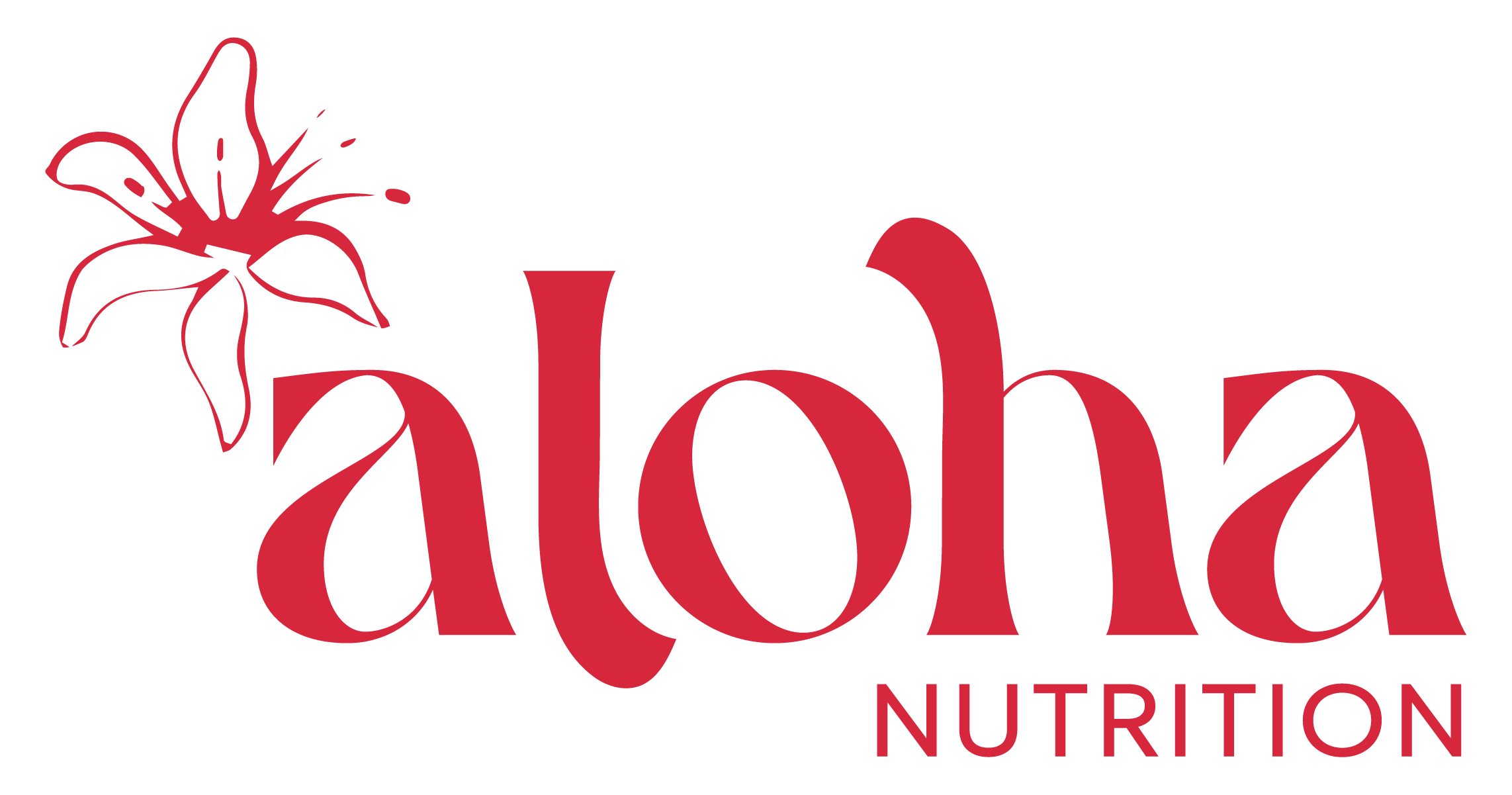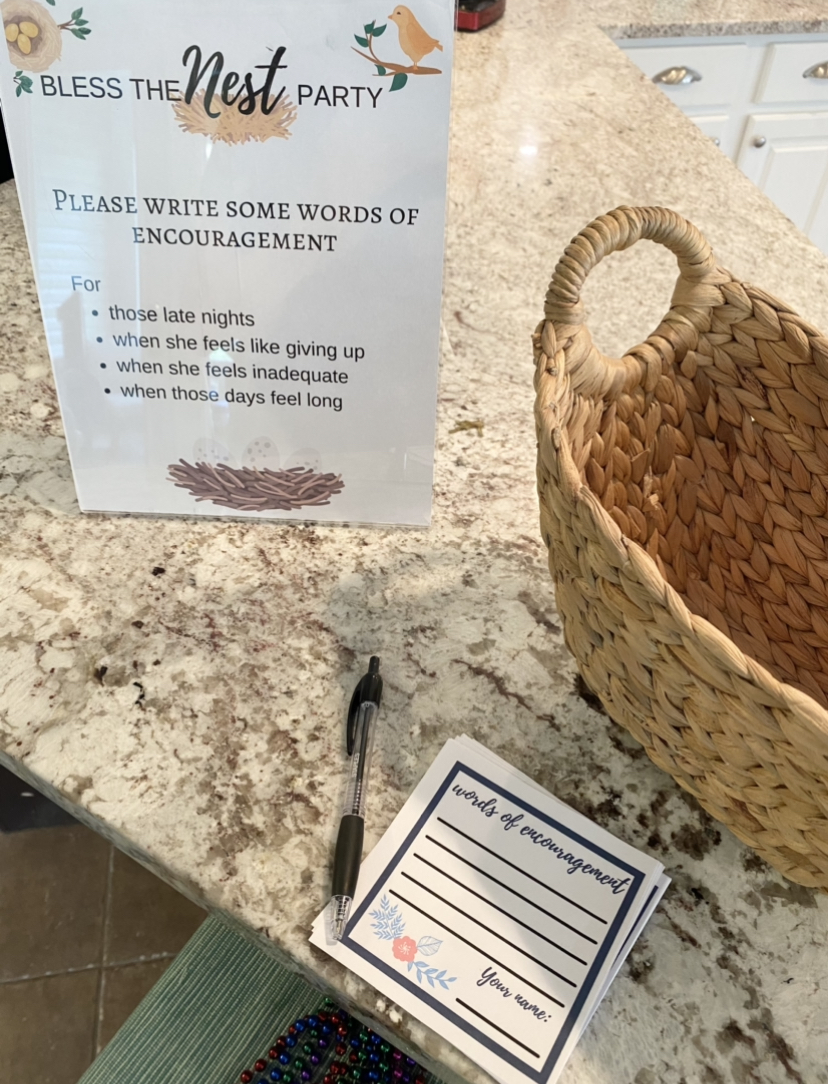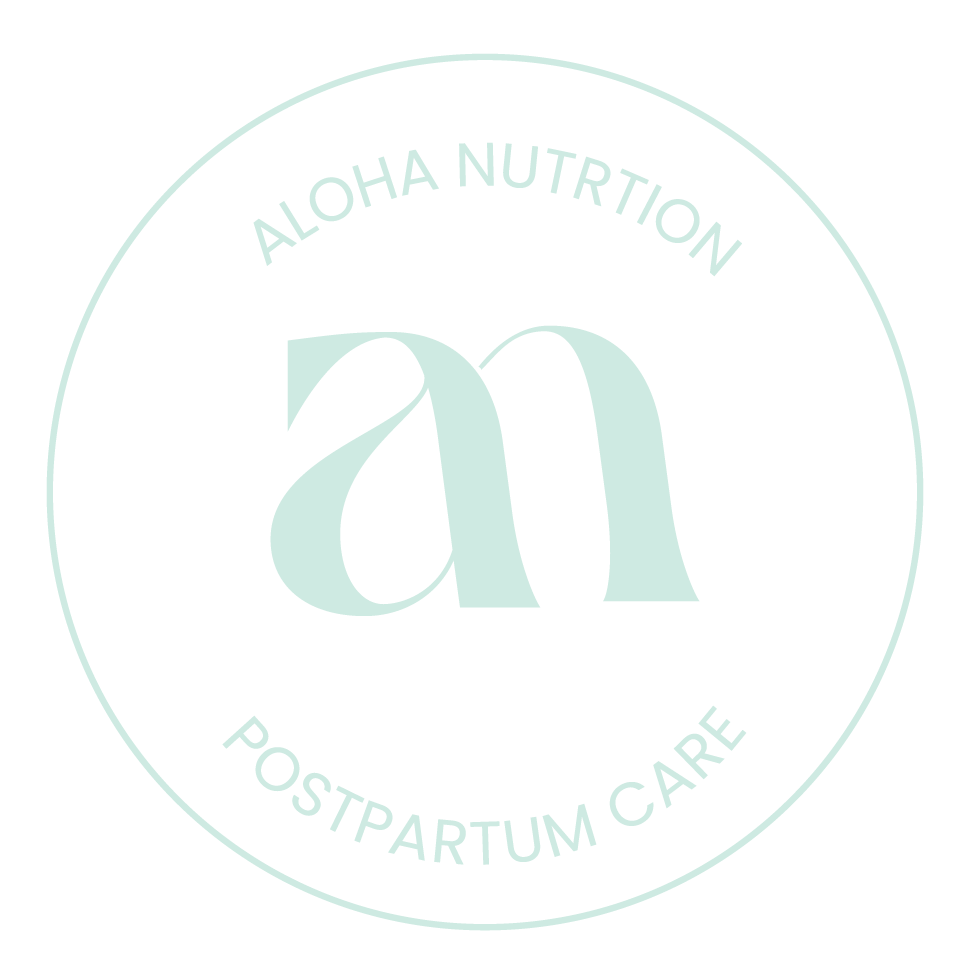Although breastfeeding is ‘natural’ that in no way means easy. Women have been breastfeeding since the beginning of time; however professional help didn’t become available until the 1970s and 80s when many mothers were requesting specialized breastfeeding support.
It was the demand by mothers, the scientific evidence, and the practical clinical skills that has led to this emerging field of lactation consultants.
But who do you turn to?
The term lactation consultant is not a trademarked term and essentially anyone can call themselves a lactation consultant. It can be very confusing as there are currently many different breastfeeding credentials.
This graph goes over the different lactation credentials and their different criteria and scope of practice.
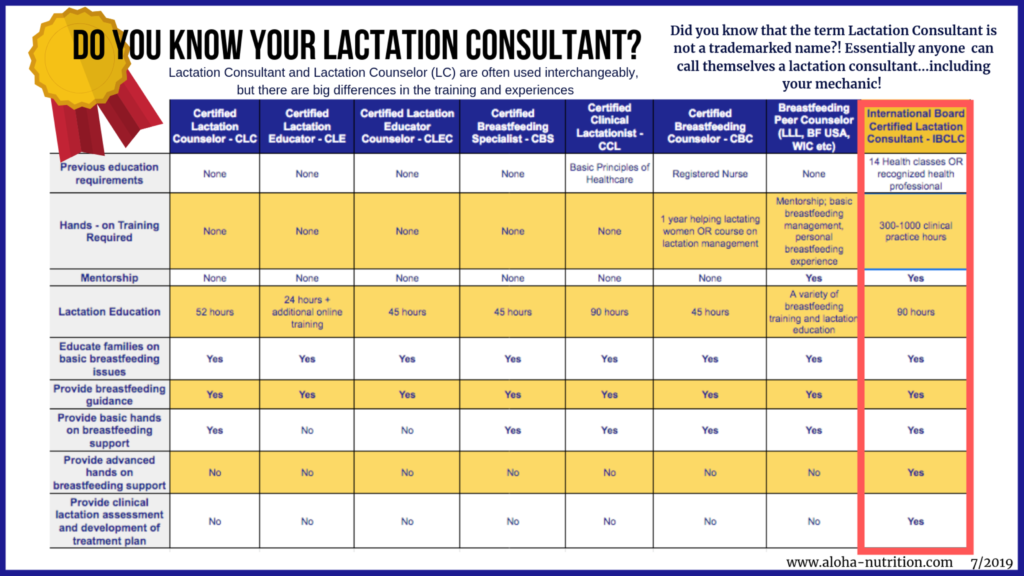
What is an IBCLC?
The last column in the graph, highlights the credential “International Board Certified Lactation Consultant” (IBCLC). Those who carry the IBCLC credential are the experts in breastfeeding and lactation care – they’re considered the gold standard.
It wasn’t until around 1985 when a group from the La Leche League International founded the International Board of Lactation Consultant Examiners (IBLCE). They saw that moms needed professional support from those that understand the ins and out of breastfeeding as well as who understand the science.
Although there are many breastfeeding specialists out there, non of them come close to the amount of work it takes to become an IBCLC lactation consultant.
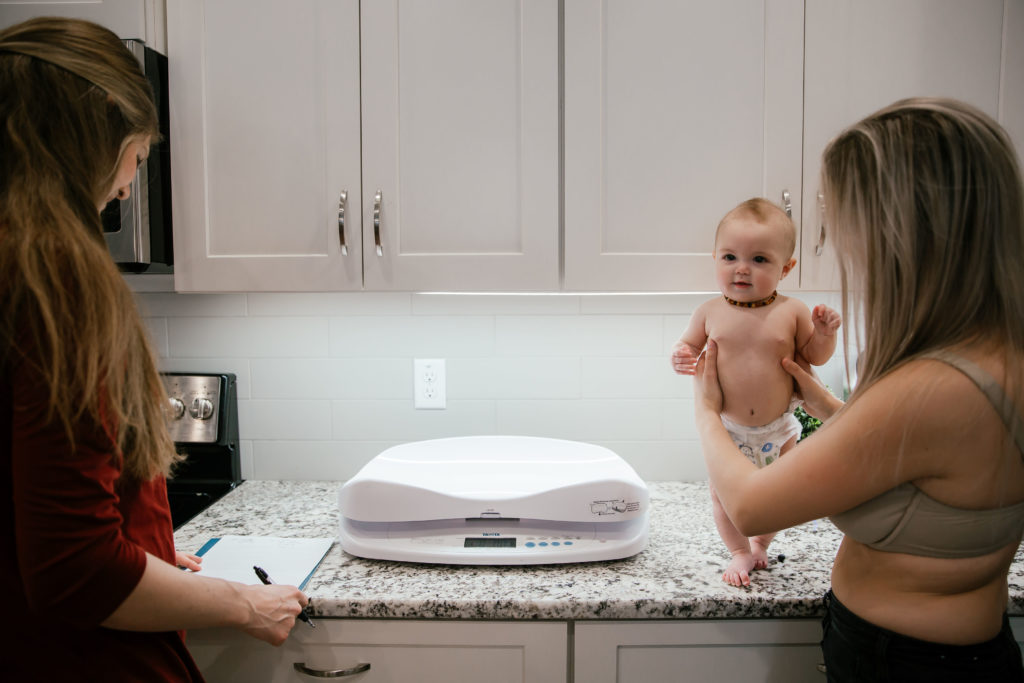
It is out of the scope of practice for a CLC, LLL, CBS, CLE or other breastfeeding advocates to assess tongue ties, and assess anomalies. They are there to provide information, resources, and basic hands on support.
What does an IBCLC do?
IBCLCs are part of the health care team, they’re the “boob doctors.” They help mothers with all kinds of breastfeeding related issues such as latching, cracked nipples, increasing/decreasing milk supply, breast anomalies, cleft palates, assessing tongue ties, an advocate and support, plus much more. Knowing the ins and outs of breastfeeding can help you no matter what issues you may face. IBCLCs can work in a variety of settings such as WIC clinics, hospitals, birthing centers, or private practice.
Is it worth seeing an IBCLC lactation consultant?
Yes! If your car broke down, would you not go to a professional mechanic to fix it? If your adult tooth fell out, would you not go to a professional dentist? Say breastfeeding isn’t going well and you’re encountering issues, wouldn’t you want to seek professional help from an IBCLC? We all know the benefits of breastfeeding, so wouldn’t you want to get proper support and help from an IBCLC, who may potentially save your breastfeeding journey?
Private practice IBCLCs are available to go to your home and work with you for 1-2+ hours to help you solve the issue, whereas other clinics can only see you for a short amount of time.
Are they costly? Well if you compare the price of an in-home visit to the cost of formula, no they’re not! Formula can cost over $2000 or more in the first year and double that for twins. So if you think about the cost of an IBCLC who could save your breastfeeding journey then it’s worth it. Rachel O’Brien, an IBCLC in private practice, has a great blog post breaking down the cost of an IBCLC in home visit and why we charge what we charge.
The IBCLCs’ whole goal is to help the mother and baby breastfeed successfully, while getting to the root cause of any issues.
Where can I find one?
You can look into your local WIC clinic, or find an IBCLC through the International Lactation Consultant Association (ILCA)’s directory.
Remember, anyone can call themselves a lactation consultant, so when doing your search for getting the breastfeeding help you need, make sure you know what credential they hold.
How do you become an IBCLC lactation consultant?
In order to become an IBCLC, one must either complete a degree in health studies OR take all the required health classes, receive extensive clinical experience (300-1000 hours), complete advanced lactation education (at least 90 hours), and must pass the world wide IBLCE exam. IBCLCs must abide by the Professional Standards and recertify every five years by either continuing education (75 hours) or by exam to stay on top of the latest research.
There are three different pathways that you can choose for your course of certification. With each pathway you must obtain lactation education plus clinical hours:
- The First pathway is for Health professionals
- The Second pathway is if you’re going through a Lactation Academic program
- The third pathway is if you have an IBCLC mentor.
This is a great chart to help you choose your correct pathway.
Are you interested in becoming an IBCLC?
IBLCE has all the information you’ll need including which pathway is best for you.
There are also some great Facebook groups you can join:
